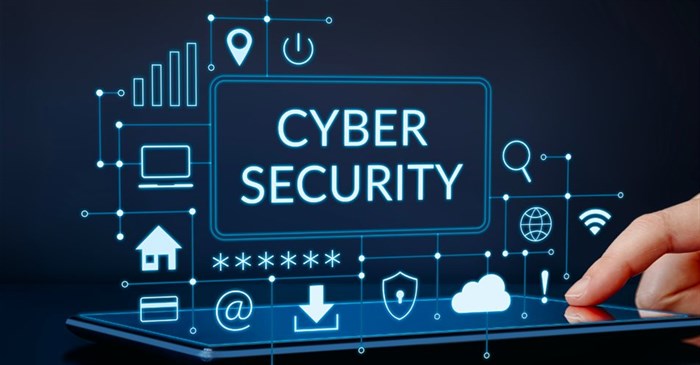
The looming threat: Cybersecurity and small to medium businesses in South Africa
South Africa has emerged as the hub for cybercrime in Africa, as indicated by a report from Interpol highlighting the escalating cyber threats. Surprisingly, South Africa now ranks third globally regarding the number of victims affected by cybercrime. This emphasizes the requirement for cybersecurity measures.

In a digitised world, the significance of cybersecurity cannot be overstated. From data breaches to large-scale cyberattacks, the threat landscape is constantly changing. Small to medium businesses (SMBs) in South Africa find themselves at the forefront of this battle. In this article, we will delve into the issue of cybersecurity and its impact on SMBs in South Africa. We will explore the challenges these enterprises face, the potential repercussions of cybersecurity practices, and strategies to safeguard their digital assets.
Understanding the South African SMB landscape
Before delving into cybersecurity concerns, it is crucial to comprehend the role of SMBs in driving growth within South Africa. These businesses are instrumental in job creation, fostering innovation, and contributing to prosperity. According to the Small Business Institute, medium enterprises (SMEs) play a vital role in South Africa's economy by contributing significantly to the country's GDP and employing millions of people. However, this economic importance also makes them targets for cybercriminals.
SMEs are the backbone of South Africa's economy, representing over 90% of all businesses in the country. They employ 50 to 60% of the workforce. Contribute around 34% to the GDP. These businesses are crucial for job creation, innovation, and economic growth. In fact 2019, SMEs accounted for 22% of total business turnover nationwide. Given their impact, it is no surprise that they are appealing targets for cybercriminals.
African SMEs face challenges when it comes to cybersecurity
- Limited resources: Many SMEs operate on tight budgets that leave little room for investing in robust cybersecurity measures. Due to constraints, they often prioritise aspects of their business over security.
- Lack of awareness: Cybersecurity awareness among SME owners and employees is still relatively low. Many underestimate the risks involved. Assume that cyberattacks only target more prominent corporations.
- Expertise: SMEs frequently need more expertise to handle complex cybersecurity issues effectively.
Cyber threats targeting medium-sized enterprises (SMEs) in South Africa are increasing. In the quarter of 2023, ransomware attacks in the country rose by 10% compared to the quarter. Ransomware attacks involve cybercriminals encrypting business data and demanding a ransom for its release. SMEs are targets because they are more likely to pay ransom, making them profitable for hackers.
Phishing scams also remain a threat in South Africa. Cybercriminals employ emails, messages, or websites to trick SME employees into revealing information or installing malicious software.
SMEs face insider threats, whether intentional or accidental; employees with access to data can compromise their organization's cybersecurity.
Furthermore, supply chain vulnerabilities affect SMEs that rely on enterprises. A cyberattack on a partner can swiftly ripple down. Disrupt operations while damaging the reputation of the affected SME.
Insufficient cybersecurity measures have severe consequences for businesses. Cyberattacks can result in losses through ransom payments and expenses related to data recovery. They can also lead to harm by causing downtime and damaging the company's reputation.
Data breaches: Medium enterprises (SMEs) often store customer data, and if there is a breach, it can result in legal consequences, loss of trust, and regulatory fines.
Operational disruption: Cyberattacks can disrupt day-to-day operations, causing delays, service outages, and decreased productivity.
Reputational damage: A breach can tarnish a company's reputation, making it challenging to regain trust from customers and partners.
Protecting SMEs
Raising awareness: SMES must educate employees about cybersecurity risks and best practices. Regular training sessions can help employees identify and respond to threats effectively.
Investing in security: While budget limitations are a reality for SMEs, investing in security measures is a long-term necessity. SMEs should not compromise basic security measures such as antivirus software, firewalls, and regular updates.
Implementing strong authentication: Enforcing password policies and considering implementing two-factor authentication can strengthen security measures.
Securing supply chains: SMEs should evaluate the cybersecurity readiness of their partners and suppliers to identify and mitigate risks.
Creating an incident response plan: Developing an incident response plan is crucial in minimising the impact of a cyberattack. Having processes in place can help mitigate damage and facilitate recovery.
Empowering cyber resilience
Strengthening your security defenses with G4Bs complete security solutions
As the cybersecurity landscape in South Africa grows more dangerous, it is crucial to protect oneself from threats. There is a range of security products to bolster defenses, including Anti Data Exfiltration, Network monitoring, Next Gen Firewalls, Antiviruses, Endpoint Detection and Response Managed Detection and Response, and more.
G4B offers a selection of these cutting-edge products for access. Recognised as one of the "Top 5 Start-ups in 2023" by NSBC Africa (National Small Business Council), G4B is an e-commerce platform focused on helping SMEs and SMMEs. They provide a range of products, services, and training tailored to each business's needs – all available on one unified platform.
In partnership with VNQ Systems, G4B further demonstrates its commitment to protecting businesses by offering a suite of products to counter cyber threats. This includes solutions for preventing data exfiltration and for detecting and responding to endpoint incidents or effectively managing detection and response tasks. Additionally, G4B provides Multi-Cloud Data Control/Backup and Recovery Protection too.
With G4B, you can rely on our expertise to ensure the security of your data and maintain a cyber environment.
G4B is like a guardian angel coming to the aid of medium-sized enterprises (SMMEs) with all their e-commerce requirements! Our platform simplifies training, IT procurement, product management, and business services, making it incredibly easy and enjoyable for small businesses to thrive!
Securing our future: A collaborative effort to safeguard SMEs in the cyber era
In today's digital landscape, cybersecurity is not just a choice but an essential requirement for South African SMEs. The evolving threat landscape poses risks that SMEs must address to protect their digital assets, financial stability, and reputation. The government, industry associations, and cybersecurity experts all have roles in educating and supporting SMEs on their journey towards cybersecurity. By adopting measures and maintaining vigilance, African SMEs can navigate the intricate world of cybersecurity and ensure a secure future.
Time is running out in South Africa's cyber battleground, where threats loom. As we confront these challenges head-on, it is crucial to recognise that cybersecurity isn't merely an option; it's an imperative for the survival of SMEs.
In this changing world, small and medium-sized enterprises (SMEs) need to be proactive in adjusting to the changes. They should use the knowledge and skills offered by organisations like G4B and VNQ to establish partnerships with industry experts and collaborate with government bodies and cybersecurity specialists. By remaining watchful and taking steps, African SMEs can safeguard their digital future, ensuring the safety of their assets, maintaining financial stability, and upholding their well-earned reputation.
About Darren Hamburg
Darren Hamburg is ICT engineer at VNQ Systems.G4B is like a digital fairy godmother, swooping in to help SMMEs with all their ecommerce needs! Our platform takes the hassle out of training, IT procurement, products, and business services, making it super easy and fun for small businesses to thrive!
- Your partner in sustainable business success20 Dec 08:13
- How to effectively manage your finances with an accountant’s expertise05 Dec 18:22
- 7 practical and simple ways South African SMEs can digitise their businesses06 Aug 15:00
- Elevate your business with G4B's flexible tech rentals19 Mar 10:29
- The looming threat: Cybersecurity and small to medium businesses in South Africa06 Feb 11:15









